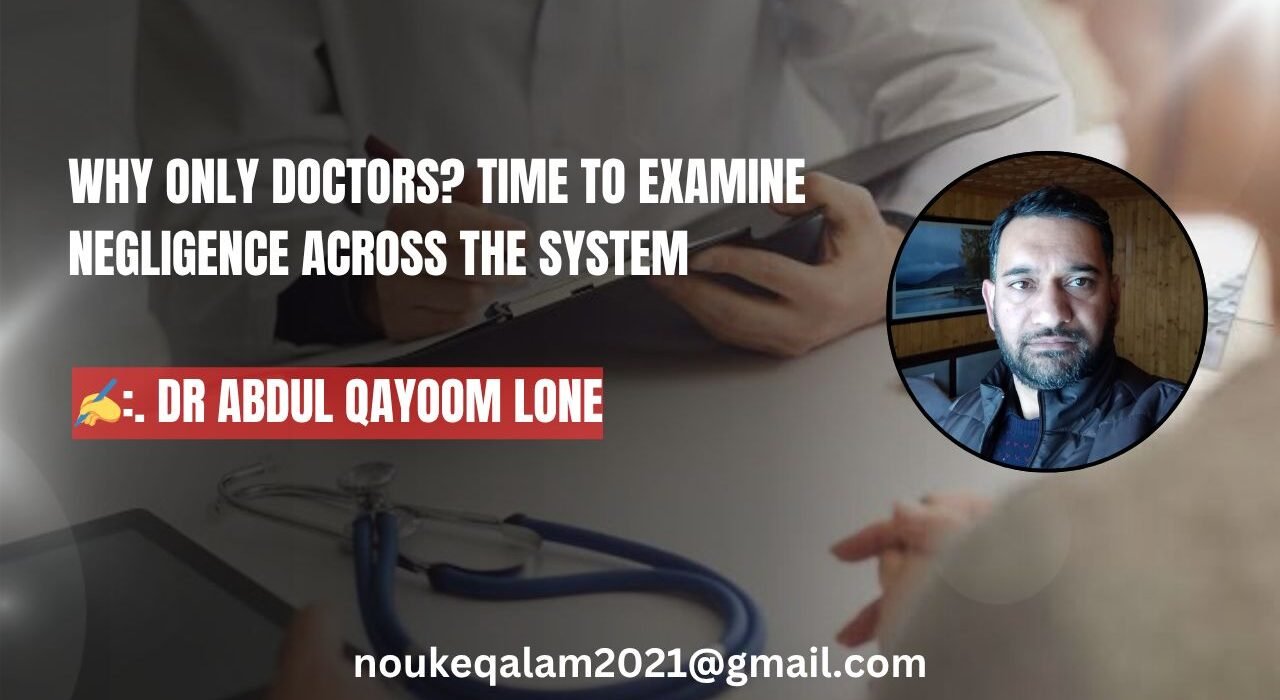In our society, doctors are often treated as superhuman—expected to perform flawlessly under all conditions. A single mishap is quickly labelled as “medical negligence,” often without a full understanding of the circumstances.
But why is this term applied so harshly and exclusively to doctors?
What about:
Judicial Negligence – when delayed justice destroys lives?
Police Negligence – when investigations are mishandled or complaints ignored?
Political Negligence – when leaders fail to respond to disasters, healthcare needs, or education crises?
Revenue Negligence – when files remain stuck for years, denying people their rightful claims?
Educational Negligence – when schools lack teachers or basic infrastructure?
Municipal Negligence – when unsafe roads, garbage piles, or open manholes go unattended?
Engineering Negligence – when bridges collapse or buildings are structurally unsound?
Weather Forecast Negligence – when missed warnings lead to disasters?
Geological Negligence – when seismic risks are ignored in development plans?
Mining Negligence – when unregulated mining operations cost lives?
Communication Negligence – when systems fail during emergencies?
IT Negligence – when data leaks or system crashes affect millions?
Administrative Negligence – when delays, corruption, or apathy paralyze governance?
Transport Negligence – when poorly maintained vehicles or reckless driving lead to accidents?
Defence Negligence – when intelligence failures or mishandling occur within the Army, Navy, or Air Force?
If doctors are held accountable for every unintended outcome, shouldn’t the same standard apply to every other profession?
Negligence is not exclusive to the medical field—it permeates every sector. It’s time we stop scapegoating one profession and start demanding equal accountability across the board.







Libreng Binance Account
July 4, 2025Thank you for your sharing. I am worried that I lack creative ideas. It is your article that makes me full of hope. Thank you. But, I have a question, can you help me?